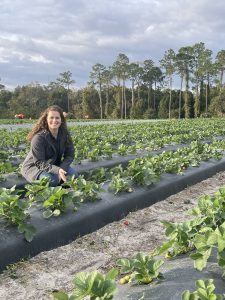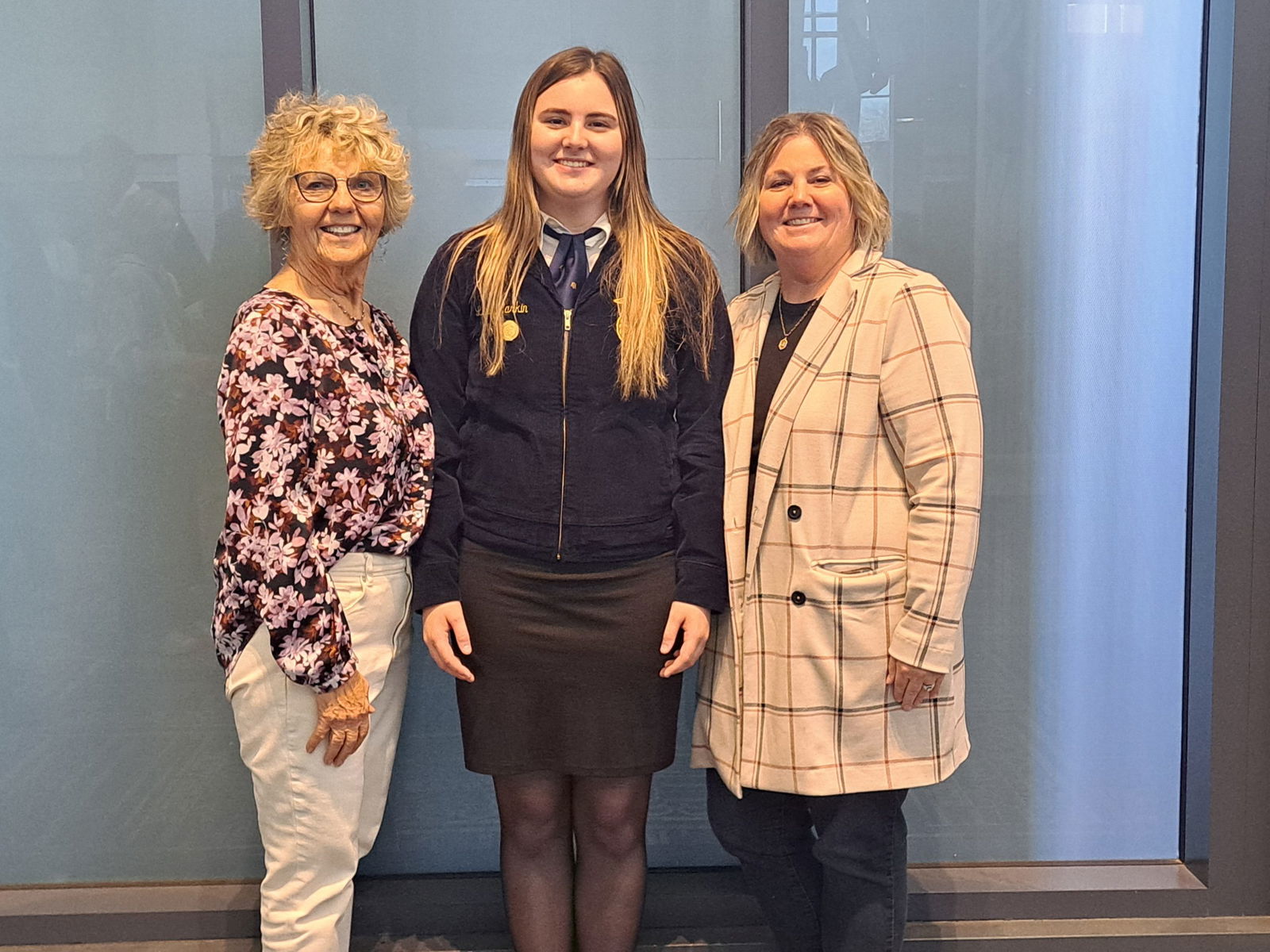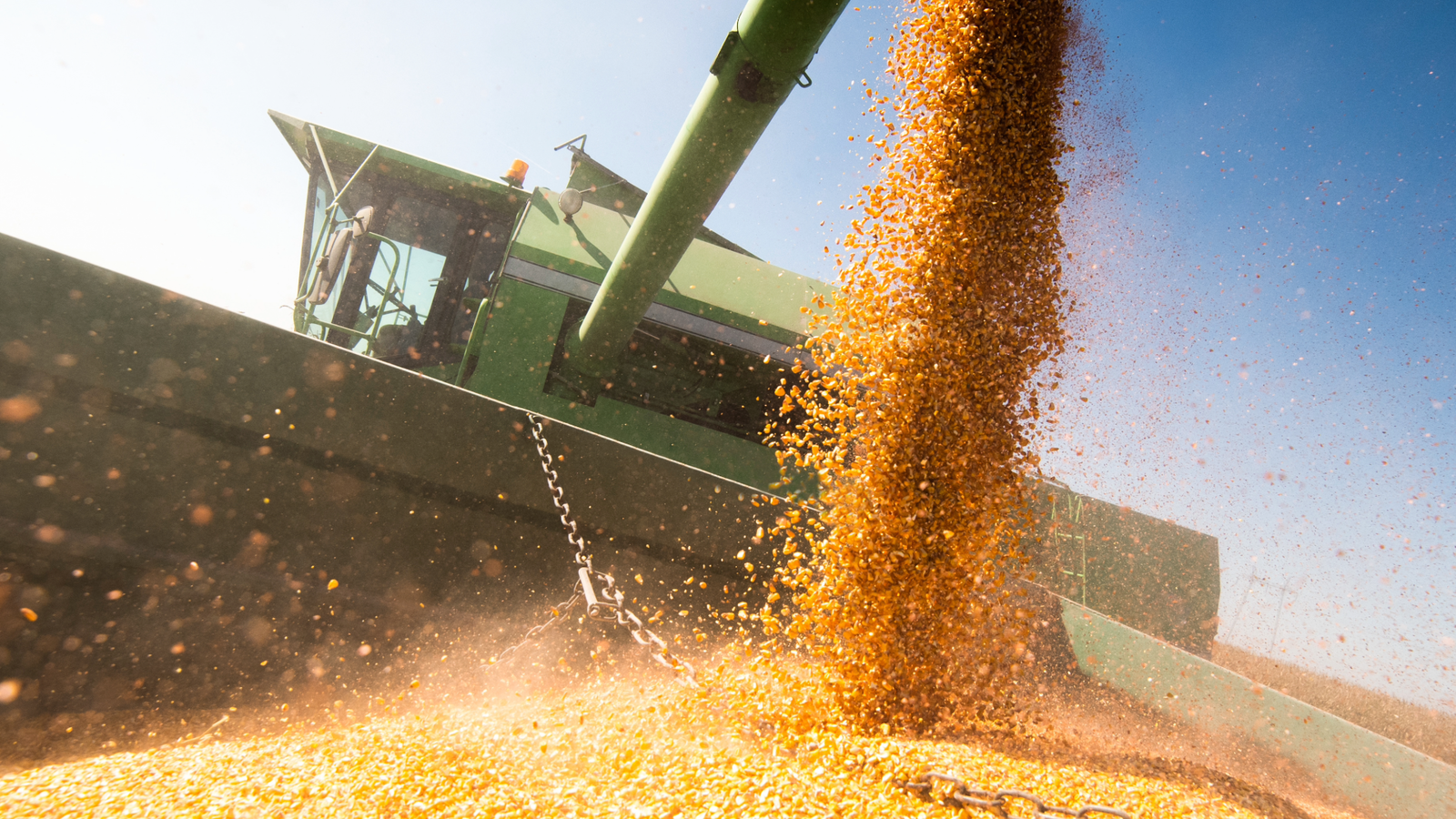Growing up on a farm in Big Rapids, Michigan, Lauren Buning was no stranger to pitching in when needed whether that was helping out at one of her family’s John Deere dealerships or picking rocks in the fields. But when she decided to attend Michigan State University, she opted for a non-farming major, turning her attention to accounting. However, she soon realized that she missed what agriculture had to offer.
“I missed the ag network and the people involved,” said Lauren. “So, I decided to switch to agribusiness management with a minor in international agriculture and agronomy.”
After several internships, she found a niche that fit her perfectly: produce.
“Fruit and vegetables are very face-paced,” said Lauren, “which fits well with my personality.”
Today, Lauren is an Account Manager at North Bay Produce, Inc., in northern Michigan, where she works with growers to ensure large grocery chains like Walmart and Aldi always have a fresh supply in their warehouses, depending on the growing season. Her position requires quick thinking and strong relationships with national and international growers – and, it’s an important one because, as Lauren noted, “Everyone goes to the grocery store and expects fresh fruits and vegetables there.”
We recently spoke with Lauren about working with a global supply chain, how internships helped her select her current career and why produce is a constantly evolving field.
Geswein Farm & Land (GFL): What does an account manager at a produce company do?
Lauren Buning (LB): We have 32 growers right now in North and South America, but we’re also expanding into Europe and beyond with farmers in like Egypt and Morocco, too. We handle blueberries, blackberries, raspberries, strawberries along with some vegetables. We also handle extremely local produce like Michigan asparagus and Michigan apples. Basically, we provide year-round supply. Either it’s brought in domestically into our warehouses or it comes in via containers or air flights. We track it all the way to get fresh fruit and vegetables for our customers, which are Kroger, Walmart, Aldi – all the big ones.
GFL: How are the tariffs affecting your business?
LB: We’re working with our growers to figure out how exactly we’re going to increase prices. Because obviously, for example, if we’re talking about the Mexican tariffs, we can’t just put a 25% tariff on the produce and pass it onto consumers because no one’s going to buy anything. There’s still a lot of wiggle room in pricing because it’s produce. Unlike other items that have a set cost.
GFL: Walk us through a typical day for you.
LB: The two accounts that I manage the most are Kroger and Meijer. I also help our category manager manage our strawberries because we have strawberry growers in Florida, Mexico and California. I talk to the growers, get projections to figure out when they plan on having products, then we relate it to our sales team so they know we’ll have a big push of strawberries in the next two weeks. We contact our company (like Kroger) and tell them we need to place a front-page ad for strawberries to clear some of this volume up because we’ll have the product ready to go. I have to sell when the product is peaking. Produce will only be in the warehouse three to four days. So, they basically have to make sure we have enough room in the supply chain so all the pieces of the puzzle get the product from the warehouse, the containers off the ship to the warehouse, and packed up to the stores.
I talk to Meijer and Kroger daily about our orders for the week. This week, Florida blueberries are really starting to ramp up. We try to get our buyers all switched over. Like, let’s go. Let’s push the blueberries because we have Florida products and everybody wants that. There’s a lot of phone calls, a lot emails and making sure our trucks are getting to their destinations on time.
GFL: What would you say the best thing is about your job?
LB: I love that each day is a new challenge. Every day isn’t the same thing over and over. There’s something new every day. Like the market has totally changed. The weather’s on. We’re picking and yesterday we weren’t picking or we were rained out. And it’s new every day. I like the fresh perspective without any of the same repetitiveness.
GFL: How did your internships prepare you for your current role?
LB: I started at Wilbur Ellis as an orchard/crop scout, which was cool to see what it was like from the grower’s perspective. I gained an appreciation for them and everything they go through, from the workers and everything. Then, I worked with MSU Extension and saw the research side of ag, which made me realize that it wasn’t for me. Then, I went to work for GreenStone Farm Credit Insurance, which focused on crop insurance. I was able to work with the farmers, but it was kind of repetitive. When I found North Bay Produce, I knew I really liked this because each day is different but also, when we do well, the growers do well, and I really like that.
GFL: What types of skills would you say someone in your position needs to have?
LB: This business is very detail oriented because we’re dealing with a commodity that’s very high value and little mistakes can cost a lot of money. I’d say it’s important to be very adaptive and be able to change as you go and understand the fast paced-ness of the industry. But, also, just to have a love for what you do because I feel like our team is kind of like a big family and everyone loves what they do. We all chip in and help each other out just to put all the pieces of the puzzle together.
GFL: Do you have any advice for someone that might want to go into produce or into something similar?
LB: The produce industry is always looking for new, fresh people to get involved, and there are definitely places for everyone. You don’t have to necessarily be in a sales role like me. There are many needs for food safety and sustainability and logistics. There are so many moving pieces so you can find your place is in the industry because everyone always wants fresh produce. It’s a very evolving industry and there’s a lot of moving pieces right now to make sure that what’s on the shelves is what the consumer wants.
# # #



